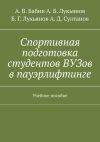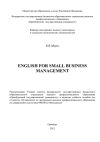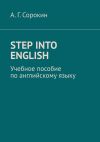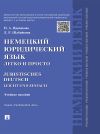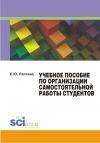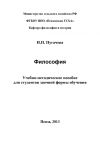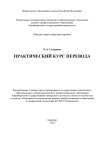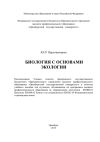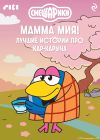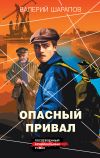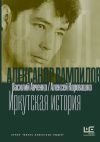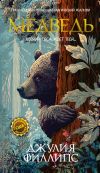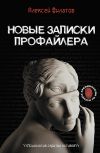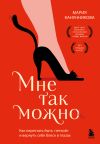Текст книги "English for academic and scientific purpose"
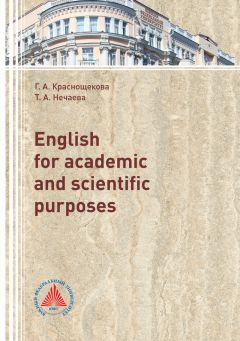
Автор книги: Татьяна Нечаева
Жанр: Учебная литература, Детские книги
сообщить о неприемлемом содержимом
Текущая страница: 2 (всего у книги 8 страниц) [доступный отрывок для чтения: 2 страниц]
15. The brain has a definite place in the head, but with regard to mind, it is only supposed to be in the brain.
Task 24
Project work.
1. Write an essay: “The possibilities of mind and brain”
2. Imagine you are giving a lecture on mind and brain. What information would you present?
3. Organize your presentation on some interesting information and facts about mind and brain.
4. Organize the discussion on the topic “The brain is an important organ in the human body whereas the mind is not like that”.
Unit 2. The Evolution of Ecology
Lead-in:
«Ecology, the unifying science in integrating knowledge of life on our planet, has become the essential science in learning how to preserve it.»
Ecology is the study of the relationships between living organisms, including humans, and their physical environment; it seeks to understand the vital connections between plants and animals and the world around them. Ecology also provides information about the benefits of ecosystems and how we can use Earth's resources in ways that leave the environment healthy for future generations.
Ecologists study these relationships among organisms and habitats of many different sizes, ranging from the study of microscopic bacteria growing in a fish tank, to the complex interactions between the thousands of plants, animals, and other communities found in a desert.(5)
Pronunciation:
Task 1
Practice the reading of the following words and translate them into Russian.

Task 2
Make sure you can read these international words correctly and translate them into Russian.
Ecology, historical, discipline, system, coral reefs, characteristic, geology, German, physician, natural, synergy, molecular biology, pollution, climate, industry, theory, dynamics, evolutionary.
Task 3
Give the missing forms for the words from the text that are in the table below.

Pre-reading:
Task 4
Answer the following questions before reading the text.
1. Which term characterizes the human impact on the environment?
2. What is an ecosystem?
3. What does an ecologist do?
4. What is recycling?
5. What is pollution?
6. How does pollution affect rivers, oceans, and our ecosystem?
7. What are people doing to stop or control pollution?
Reading A
WHAT IS ECOLOGY?
The scientific discipline of ecology is dynamic, steeped in historical tradition but adapting to its changing environment and building its own ecological network of interactions with other disciplines. Society has become increasingly aware that we are losing crucial parts of our ecosystem, and that the activities of human beings are threatening the sustainability of the biosphere as a life-support system for humanity.
The word "ecology" did not exist when Charles Darwin published his journal, The Voyage of the Beagle, but one can argue that Darwin's account launched ecology as a discipline. Darwin began by reminding his readers that he had previously published volumes on coral reefs, volcanic islands, and the geology of South America. His integration of the physical and biological dimensions of the places where the Beagle stopped, complemented by influential contemporary work by the English naturalist Alfred Russel Wallace, defined a new and synthetic way of looking at nature in which the patterns characteristic of particular regions found explanation in a unifying, dynamic framework. The term «oekologie» came later, the inspiration of the German scientist and physician Ernst Haeckel, but it was the theories of Darwin and Wallace that created the rich understanding of this science.
Ecology sprang from a marriage between geology and natural history, rooted in observation, but answering a need for a conceptual framework. From its early roots, it became increasingly rigorous and quantitative, and a century later provided the natural discipline for responding to the environmental challenges highlighted by Rachel Carson, Paul Ehrlich, and others.
Fields like ecotoxicology, which studies the fate, transport, and effects of chemicals in the environment, and conservation biology, which seeks to preserve biodiversity, were spawned, closely linked to ecology, but much more applied in focus. The synergy among the disciplines was constructive, but it also tended to blur the distinctions in the public eye between the science of ecology and the application of ecological principles to the management of natural resources. Ecology is a scientific discipline, like physics or molecular biology, whose practitioners are driven by the search for patterns and process in nature. Their findings can inform political decisions about resource use, pollution, climate change, and other environmental issues; but advocacy regarding decisions about our environmental priorities is outside the discipline of ecology. Still, for many people, "ecologist" became a term applied to anyone who wanted to save the planet, or selected parts of it, which made no more sense than calling someone who marvels at the night sky an astronomer.
The application of ecological principles to environmental problems did not suddenly occur with the publication of Silent Spring in 1962; that, like ecology as a whole, had much older roots. The fishing industry provided an early case study nearly a century ago, when the distinguished Italian biologist Umberto D'Ancona puzzled over the causes of fluctuations in the fisheries of the Adriatic. Fortunately, D'Ancona was to marry the daughter of the great Italian mathematician, Vito Volterra, who had become interested in applying his skills in formal mathematics to the study of biological and social systems. Volterra is famous among mathematicians for his contributions to the theory of functional and integral equations, but is even better and more widely known for the equations he and Alfred Lotka derived independently to describe the dynamics of interacting species. Nevertheless, the greatest contribution Volterra made was not in his specific equations, but rather in the heterodox idea that sophisticated mathematical methods could be used to understand the dynamics of natural systems. The equations of Volterra and Lotkaare taught today in virtually every first course in ecology, and the application of mathematical and computational methods has expanded into every branch of ecology, giving us, for example, integrated models that deal with the interaction between a changing climate and the growth of forests and other vegetation. The influence of mathematics and computation in biology as a whole has also expanded in the last decade, and fields like systems biology (the study of the interplay among the parts of biological systems, like molecular or metabolic systems) and computational biology (with its use of mathematics and computation) have become essential parts of any modern biology department. It should not be lost, however, that through the contributions of Volterra and those who followed his example, ecology was the first sub discipline of biology to become quantitative.
The writings of Darwin and Wallace clearly influenced the development of ecology; but perhaps even more fundamentally, they also launched the field of evolution. The scientific discipline of ecology has thus been, in some sense, a key node in an ecology of scientific disciplines. From its roots in natural history, it has built partnerships with botany and zoology; with geology and paleontology; with mathematics; and with evolutionary studies, from molecular biology to population genetics and development. It has not ignored physics and engineering along the way, in its need to understand the mechanics of how animals and plants grow and move, or how they capture energy and resist stresswhy, for example, trees are shaped the way they are. Ecologists make their living by recognizing the interconnectedness of different parts, and different disciplines.
What we must do now, however, is to unify science and the social sciences and humanities further in the service of preserving the earth. That challenge is stretching ecology in new directions. To sustain the planet, we must be able to protect the goods and services ecosystems provide, and that requires knowing what they mean to us. In large part, that is the domain of economics. Bringing ecology and economics together is not new, and most land-grant universities have strong departments of agricultural and resource economics that deal with the economics of agriculture, fisheries, and forests. However, new dimensions in environmental and ecological economics have been developing rapidly, focusing on questions about the value of whole ecosystems, about the optimal design of nature reserves, and about how to manage public goods. Broadly understood, environmental public goods include the air we breathe and the water we drink, the fish we catch and the lakes and oceans that sustain them, as well as the antibiotics that have contributed so much to the advancement of medical care.
Ecology views biological systems as wholes, not as independent parts, while seeking to elucidate how the wholes emerge from and affect the parts. Increasingly, such a holistic perspective, rechristened at places like the Santa Fe Institute as "the theory of complex adaptive systems," has informed understanding and improved management of economic and financial systems, social systems, complex materials, and even physiology and medicine. Essentially, that means little more than taking an ecological approach to such systems. (6)
Task 5
Give the Russian equivalents to the following.
steep in historical traditions, crucial parts, respond to the environmental challenges, management of natural resources, be outside the discipline of ecology, describe the dynamics of interacting species, influence the development of ecology, bring ecology and economics together, view biological systems as wholes, optimal design of nature reserves, broadly understood, unify science and the social sciences.
Task 6
Match up the words with a close meaning.

Task 7
Match up the words with the opposite meaning.

Task 8
Match the following words with their definitions.


Task 9
Use suffixes to form different parts of speech.
tial; -ical; -tific; -al; -less; -able; -tion-ment; -ness; – tical
Argue; aware; influence; geology; science; policy; nature; depart; help; contribute; understand; expand; describe; computation.
Task 10
Match a line in A with a line in B

Task 11
The table below contains words that have been chopped in half. Find the pieces that fit together and write them down.

Task 12
Guess the words.

Task 13
Write out 7-8 words or word combinations to characterize the discipline “Ecology”
Task 14
Agree or disagree with the following statements.
1. Charles Darwin contributed a lot to ecology.
2. Ecology is of great help in political decisions about nature.
3. Ecology is connected only with botany.
4. Ecological economics is not a new discipline.
5. Mathematical methods help understand the dynamics of natural systems
Task 15
Answer the following questions.
1. Why is the discipline of ecology dynamic?
2. What is the contribution of Charles Darwin to ecology?
3. What scientists contributed to the development of ecology?
4. Why is synergy among the disciplines important?
5. Why is ecology important for politics and economics?
6. How does/did mathematics/biology influence ecology?
7. What is evolution and who launched this field?
8. What does “preserve the earth mean”?
9. Why does ecology view biological systems as wholes but not as independent parts?
10. What do you do to help our planet?

Task 16
Tell the story of the picture. These words will help you:
once; spend; day-off; in the open; go to the river; have a rest; dog; some food; bag; under the tree; began playing with…; throw; stick; teach; bring back; smile; soon; feel hungry; have a snack; eat; sandwiches; bread and butter; boiled eggs; fish; meat; drink; coffee; after the meal; throw; bones; empty tins; dog; run into…; return with…; be angry and upset; selfish; make … dirty; teach … a lesson

Task 17
Make a list of things that are thrown away and how we could make us of them.

READING B

Task 18
Read the text, try to catch its essentials and be ready to do the tasks.
Disappearing Honeybee
“If the bee disappeared off the surface of the globe, then man would only have four years of life left.”
Albert Einstein
«The only reason for being a bee that I know of is to make honey.... And the only reason for making honey is so as I can eat it.»
Winnie the Pooh
*****************
“The bee is more honored than other animals, not because she labors, but because she labors for others”
Saint John Chrysostom (archbishop of Constantinople, 347-407)
Do you run away when you hear a bee buzzing? Many people do. A bee sting hurts and some people are allergic to bee venom. However, did you know that bees are very important to humans? Honeybees do more than just make honey. They fly around and pollinate flowers, plants, and trees. Our fruits, nuts, and vegetables rely on these pollinators. The honeybee pollinates One third of America’s food supply.
Have you seen or heard a honeybee lately? Bees are mysteriously disappearing in many parts of the world. Most people do not know about this problem. It is called Colony Collapse Disorder (CCD). Some North American beekeepers lost 80% of their hives from 2006-2008. Bees in Italy and Australia are disappearing too.
The disappearance of the honeybee is a serious problem. Can you imagine never eating another blueberry? What about almonds and cherries? Without honeybees, food prices will skyrocket. The poorest people always suffer the worst when there is a lack of food.
This problem affects other foods besides fresh produce. Imagine losing your favorite ice cream! Haagen Daaz is a famous ice cream company. Many of their flavors rely on the hard working honeybee. In 2008, Haagen Daaz began raising money for CCD. They also funded a garden at the University of California called The Haven. This garden helps raise awareness about the disappearing honeybee and teaches visitors how to plant for pollinators.
Donating money to research is the most important thing humans can do to save the honeybees. Scientists need money to investigate the causes of Colony Collapse Disorder. Some scientists blame CCD on climate change. Others think pesticides are killing the bees. Commercial bee migration may also cause CCD. Beekeepers transport their hives from place to place in order to pollinate plants year round.
Not everyone has money to donate regularly. There are other ways to help the honeybee. (7)
Task 19
Match the following words with their definitions.


Task 20
Reading Comprehension Quiz.
1. According to the text, the disappearance of honeybees is called ______.
2. Humans rely on honeybees to ______.
3. According to the article, which famous company is very worried about CCD? ______
4. What is the most important thing people can do to help honeybees? ______.
5. Moving honeybees from place to place is called ______.
Task 21
Fill in the gaps.
1. When something collapses it _______.
2. The place where honeybees live is called ______.
3. Another word for “rely on” is ______.
4. We need bees to ______ the plants that we eat.
5. There is ______ of honeybees in North America.
Task 22
Complete each sentence with the most suitable ending.

Task 23
Recognize facts and opinions in the text.
Task 24
Find the most important sentence in each paragraph and present your summary of the text.
Task 25
Answer the questions.
1. Why is the honeybee so important to humans?
2. Do you think humans can survive without honeybees?
3. Do you think scientists will invent mechanical pollinators that work as hard as honeybees?
4. Which companies need to worry about CCD the most?
5. Scientists fear that the disappearing honeybee will have a "ripple effect". What does this mean?
Task 26
Read the text, try to catch its essentials and be ready to do the tasks.

Polar Bear Makes the List
Majestic creature of the far north, the polar bear is the world's largest terrestrial carnivore. Its Latin name, Ursusmaritimus, means 'sea bear', an apt name for this amazing species which spends much of its life in, around, or on the water – predominantly on the sea ice.
In spring 2008, the polar bear was placed on the endangered species list. According to the Endangered Species Act, an endangered species is an animal that is likely to face extinction in its natural habitat. Polar bears have been categorized as a "threatened" species. The ESA defines a threatened species as one that is likely to become "endangered" in the foreseeable future.
The polar bear is the first animal that has been classified as endangered due primarily to global warming. Carbon dioxide and other greenhouse gases that become trapped in the atmosphere cause global warming. Heating homes, driving cars, and burning garbage all require fossil fuels that lead to global warming.
The polar bear's habitat is more vulnerable to global warming than many other species. Polar bears live mainly on the sea ice in the Arctic. This is where they hunt for fish and build up fat reserves. When the ice melts, many polar bears move to land and live off their stored fat. In the Arctic, global warming is causing the ice to melt slightly earlier and form slightly later. This results in a shorter feeding season for the polar bear. Some risk their lives to find ice. If they have to swim too far they will drown from exhaustion and hunger. The World Wildlife Fund estimates that 25% of the Arctic sea ice has disappeared in the past 30 years.
It is not only the polar bear that is at risk in the Arctic. Every species of plant, animal, and insect there is threatened by global warming. Nevertheless, environmentalist groups such as the World Wildlife Fund often study large carnivores in order to assess the health of an ecosystem. The Arctic food chain relies on the polar bear. In addition, donations are more commonly offered for the protection of large animals such as bears or elephants. People in general are less interested in conservation efforts that protect small wildlife, such as plants or insects. However, by using donor money to protect the habitat of the larger animals (ex. reforestation programs), entire ecosystems can be protected.
It is important that animals such as the polar bear make it onto the endangered species list. Once they are on the list, there are laws that protect these animals from being hunted for food or sport. Agencies also receive money and tools to protect the habitat and recover the species. The goal of removing the animal from the list is often achievable. Since the Endangered Species Act was introduced in the US in 1973, many species have been taken off the list due to increased populations. In fact, it is rare for a species to go extinct after they make the list. Sadly, many species do go extinct while waiting for consideration. (8)
Task 27
Match the following words with their definitions.

Task 28
Fill in the gaps.
1. The place where a species lives and reproduces is its ______.
2. When a species is no longer found on earth it is said to be _____.
3. Reforestation in an area where a threatened species lives is an example of a ______.
4. The gradual warming of the earth is called ______.
5. Once a species is placed on an endangered list, a group will attempt to ______ the population.
Task 29
Agree or disagree with the following statements.
1. Polar bears cannot swim long distances without eating.
2. A rare insect got on the endangered species list last year, and the conservationists could recover it within six months.
3. We must do our part to help preserve the Arctic habitat.
4. We must not forget about the other animals and plants in the Arctic food chain.
Task 30
Recognize facts and opinions in the text.
Task 31
Find the most important sentence in each paragraph and present the summary of the text.
Task 32
Complete each sentence with the most suitable ending.

Task 33
Render the text into English.
Что изучает экология?
Что изучает экология? Экология – это особый раздел общей биологии. Она изучает взаимодействие живых организмов, их приспособление к жизни друг с другом. Также в экологии изучается характер связи и зависимости живых существ от условий их существования.
Известно, что в ходе эволюции самые приспособленные виды выживают с помощью того, что умеют адаптировать себя к условиям окружающей среды. Этот закон выживания касается абсолютно всех живых организмов без исключения. Теорию естественного отбора создал и разработал Чарльз Дарвин.
Виды науки экологии
Экология охватывает большой круг вопросов. Прежде всего, изучению подвергаются факторы среды и комплексы этих факторов. Дается ответ на вопрос о том, каким образом какие-то элементы среды могут влиять на жизнь вида и к каким приемам адаптации они приводят. В качестве основных факторов выделяют такие, как физико-химический (температура, свет, влажность, осадки, ветер, почва и т. д.), биотический фактор (влияние организмов и видов друг на друга), антропогенный (влияние человеческой деятельности на жизнь природы).
Второй блок науки экологии занимается изучением популяций растений и животных. Популяции определяют как некую группировку особей одного вида, которые живут на одной территории и используют ее ресурсы. Также особи обладают одним органическим строением и биологическими свойствами.
И третий раздел экологии называют биоценология. Этот раздел занимает очень важное место в экологии. Он занимается изучением целых растительных и животных сообществ. Эти большие образования состоят из популяций разных видов.
Жизнь и внешний облик любого животного определяют условия пребывания, в которых животное оказывается. Все разнообразие форм жизни на Земле сформировалось благодаря разным местам обитания. Скажем, крот не нуждается в хорошем зрении, так как он живет под землей. Ему, скорее, лучше подойдут хорошие обонятельные способности. А вот обитателям неба, например, орлам, просто необходим острый глаз, способный видеть жертву с расстояния в несколько километров. Таким образом, в небе нужны крылья, ну а под землей – гладкая шерсть, которая может легко скользить в почве. Вот что изучает экология.
Деятельность экологов
Ну а чем занимаются сами ученые-экологи? Основная площадка их деятельности – это сама природа. Экологи выбираются в экспедиции, где исследуют все интересующие их факторы. Они изучают жизнь растений и животных в различных условиях, плотность и характер заселения видами разных территорий, пытаются выделить закономерности влияния факторов среды на животных и растения, проводят количественные расчеты, детально изучают популяции и большие сообщества. Несомненно, им есть чем заняться. Обычно экспедиции могут достигать нескольких месяцев по времени проведения. Но зачастую, и этого очень мало, чтобы успеть изучить все, что нужно.
Техническое оснащение экологов поразит фантазию даже самых ярых поклонников шпионских и детективных фильмов. На их вооружении находятся самолеты, вертолеты, автомобили повышенной проходимости, различные высокоточные приборы замера синтеза растений, термометры, действующие на расстоянии, эхолокаторы, радиотрекеры, приборы ночного видения и многое-многое другое. Вот что изучает экология.
Наука экология занимает важнейшее место в системе всех естественно научных направлений знания. Данные, которые получены экологами, могут использоваться в целях повышения качества жизни нашей планеты в целом. Таким образом, экология позволяет понять нашу планету, законы ее природы и роль влияния человека на Землю. Насколько мы портим или, наоборот, улучшаем жизнь нашей родной планеты? Вот на какой вопрос может ответить экология. (9)
Task 34
Topics for final discussion.
1. Environmental disasters are not all natural. What fabricated environmental disasters can you name? Choose one and discuss it causes and its effect on the environment. What can and should be done to prevent it happening?
2. Which kind of pollution do you feel most strongly about? Why?
3. What happens when we remove forests?
4. Comment on the following: “Progress without responsibility”.
5. Comment on the following: “Today every invention is received with a cry of triumph which soon turns into a cry of fear”. (Berthold Brecht)
6. Recycling as an important community service.
Внимание! Это не конец книги.
Если начало книги вам понравилось, то полную версию можно приобрести у нашего партнёра - распространителя легального контента. Поддержите автора!